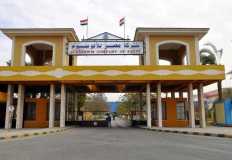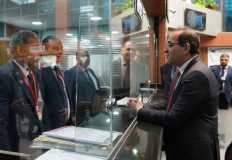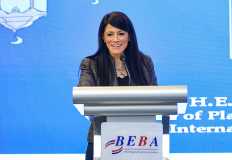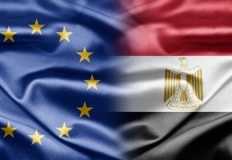
Dr. Rania Al-Mashat, Minister of Planning and Economic Development and International Cooperation, received a delegation from the Korea International Cooperation Agency (KOICA), headed by Jinyoung Kim, Head of the KOICA Egypt and Middle East Office. They discussed joint cooperation efforts to implement a digital platform for integrated and comprehensive risk management to facilitate trade in Egypt, which is being implemented for the benefit of the General Authority for Export and Import Control.
The Minister of Planning commended the KOICA for its financial and technical support in developing a digital risk management platform. This platform is designed to facilitate and enhance trade through digital transformation. She stressed the project's significance in boosting competitiveness by accelerating inspection and customs clearance, minimizing administrative barriers, and ensuring adherence to international trade standards.
Dr. Al-Mashat affirmed that the project aligns with Egypt's
strategic objectives for digital transformation and economic sustainability. It
will provide precise data to assist policymakers in formulating more effective
strategies for the trade and industry sectors. The project's long-term benefits
include fostering digital integration among government agencies, thereby
improving governmental efficiency and reducing bureaucratic complexities.
During the meeting, the KOICA team presented the project's
key aspects, implementation stages, and the anticipated economic advantages,
notably reducing cargo waiting times at customs ports.
The Regional Director of KOICA's Egypt office praised the
productive collaboration with the ministry in coordinating expert visits to the
Egyptian General Authority for Export and Import Control to finalize the
project.
Jinyoung Kim emphasized KOICA's dedication to collaborating with the ministry to expand digital transformation efforts, highlighting this project as a key achievement. The project seeks to streamline Egyptian trade, boost its global competitiveness, and simplify import inspections by shortening shipment processing times at ports. Key activities include developing guidelines for refining machine learning models for precise risk-based cargo selection and formulating a strategic plan for improved inspection and tracking systems.





